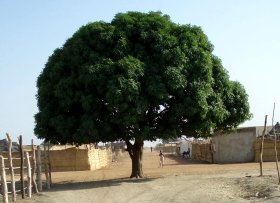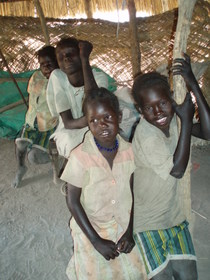What does Timpir mean?
The name Timpir is made of two Dinka words: tim (tree) & pir (bud). Therefore, ‘Timpir’ means a ‘budding tree’. The words tim (tree) & pir (bud) and their meanings are universal among the Dinka people of South Sudan.
The name Timpir was chosen for several reasons:
- many important events take place under trees in South Sudan including court hearings, wedding negotiations and traditional education
- the idea of a newly shooting tree was important as it symbolizes the new growth and development in South Sudan following the end of the civil war in 2005
- through the provision of education to children in South Sudan, we are planting a seed of knowledge which will develop over time.
Who are we?
Timpir was formed in 2005, with the vision to work with the people of South Sudan and the global community to improve access to education, health care and general development in South Sudan. South Sudan has lacked access to development as a result of recurrent civil war from the 1950s to 2005.
South Sudan lags behind much of the rest of the world in standard markers of development:
- more than 90% of the population in South Sudan currently live on less than 1 dollar a day
- one out of every 6 children will die before their first birthday
- only 1.9% completes primary school education
- for every 1,000 primary school students there is only one teacher
- 92% of women in South Sudan cannot read or write
- a 15 year old girl has a higher chance of dying in childbirth than completing school
(Office of the UN Resident and Humanitarian Coordinator for the Sudan, 2010 #2)
Timpir is a small grassroots organisation that works to improve the lives of people in South Sudan through locally developed and operated community development initiatives. Timpir is run by a board of 10 volunteer directors who oversee the design, implementation and running of Timpir’s projects in South Sudan. Working with local community members in South Sudan to identify, plan and implement projects is fundamental to Timpir’s ethos, however Timpir relies on the financial and volunteer support of people around the globe to make these projects possible.


